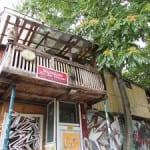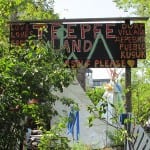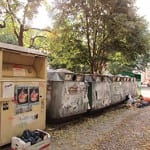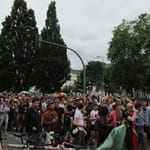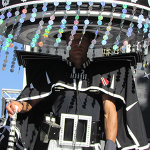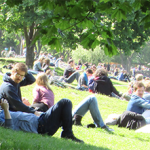-
 Germany
Berlin
Germany
Berlin
- Rei Watanabe
- 2015.11.27
- Berlin's history through a zoetrope: Fichte-Bunker
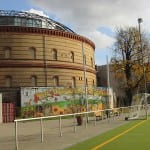
- A peculiar building stands in my neighborhood. People tend to pass by thinking it to be just an oddly-shaped piece of architecture, but that is a tragedy caused by the busyness of adult life. When I went inside with the idea of introducing it here, I was surprised to find that this innocuous building in a residential district is filled with a great deal of history.
- Continue reading











